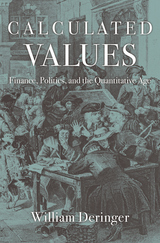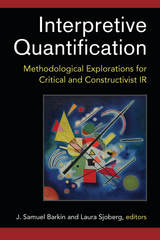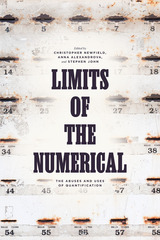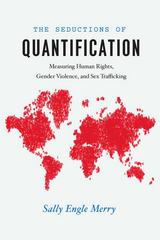
Modern political culture features a deep-seated faith in the power of numbers to find answers, settle disputes, and explain how the world works. Whether evaluating economic trends, measuring the success of institutions, or divining public opinion, we are told that numbers don’t lie. But numbers have not always been so revered. Calculated Values traces how numbers first gained widespread public authority in one nation, Great Britain.
Into the seventeenth century, numerical reasoning bore no special weight in political life. Complex calculations were often regarded with suspicion, seen as the narrow province of navigators, bookkeepers, and astrologers, not gentlemen. This changed in the decades following the Glorious Revolution of 1688. Though Britons’ new quantitative enthusiasm coincided with major advances in natural science, financial capitalism, and the power of the British state, it was no automatic consequence of those developments, William Deringer argues. Rather, it was a product of politics—ugly, antagonistic, partisan politics. From parliamentary debates to cheap pamphlets, disputes over taxes, trade, and national debt were increasingly conducted through calculations. Some of the era’s most pivotal political moments, like the 1707 Union of England and Scotland and the 1720 South Sea Bubble, turned upon calculative conflicts.
As Britons learned to fight by the numbers, they came to believe, as one calculator wrote in 1727, that “facts and figures are the most stubborn evidences.” Yet the authority of numbers arose not from efforts to find objective truths that transcended politics, but from the turmoil of politics itself.

In Interpretive Quantification, ten highly regarded scholars in the field of International Relations apply quantitative methods and formal models to specific constructivist and critical research questions. In this way, each chapter serves not only as evidence that methods can productively be applied across paradigms, but also as a guide as to how this may be done. In sum, the contributors make a compelling case that when researchers cordon off particular methods for merely ideological reasons, they circumscribe their own paradigms and hinder their own research agenda.

Numbers are both controlling and fragile. They drive public policy, figuring into everything from college rankings to vaccine efficacy rates. At the same time, they are frequent objects of obfuscation, manipulation, or outright denial. This timely collection by a diverse group of humanists and social scientists challenges undue reverence or skepticism toward quantification and offers new ideas about how to harmonize quantitative with qualitative forms of knowledge.
Limits of the Numerical focuses on quantification in several contexts: climate change; university teaching and research; and health, medicine, and well-being more broadly. This volume shows the many ways that qualitative and quantitative approaches can productively interact—how the limits of the numerical can be overcome through equitable partnerships with historical, institutional, and philosophical analysis. The authors show that we can use numbers to hold the powerful to account, but only when those numbers are themselves democratically accountable.

With The Seductions of Quantification, leading legal anthropologist Sally Engle Merry investigates the techniques by which information is gathered and analyzed in the production of global indicators on human rights, gender violence, and sex trafficking. Although such numbers convey an aura of objective truth and scientific validity, Merry argues persuasively that measurement systems constitute a form of power by incorporating theories about social change in their design but rarely explicitly acknowledging them. For instance, the US State Department’s Trafficking in Persons Report, which ranks countries in terms of their compliance with antitrafficking activities, assumes that prosecuting traffickers as criminals is an effective corrective strategy—overlooking cultures where women and children are frequently sold by their own families. As Merry shows, indicators are indeed seductive in their promise of providing concrete knowledge about how the world works, but they are implemented most successfully when paired with context-rich qualitative accounts grounded in local knowledge.
READERS
Browse our collection.
PUBLISHERS
See BiblioVault's publisher services.
STUDENT SERVICES
Files for college accessibility offices.
UChicago Accessibility Resources
home | accessibility | search | about | contact us
BiblioVault ® 2001 - 2024
The University of Chicago Press









